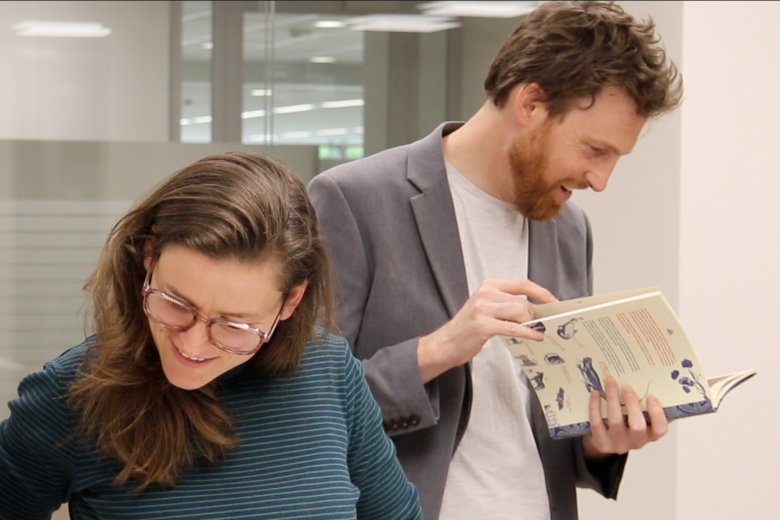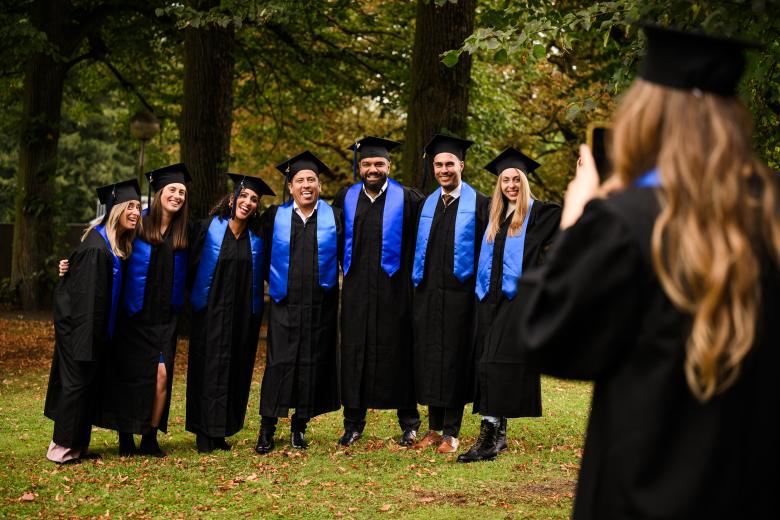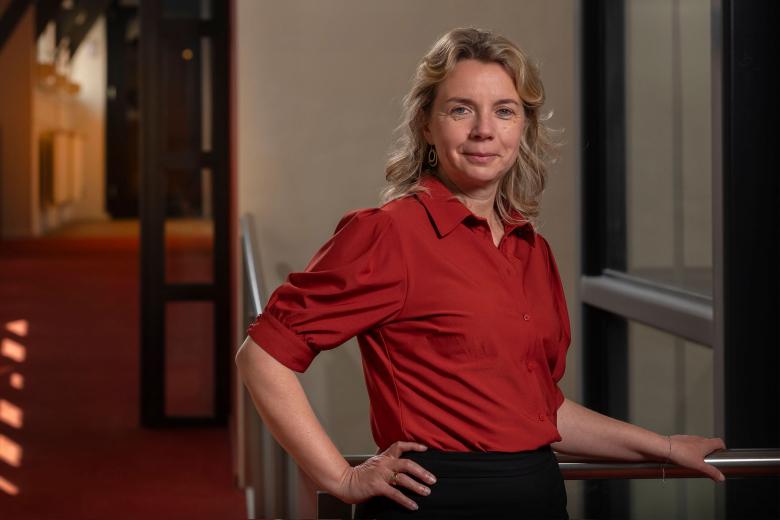A teacher is always a learner
At the Faculty of Health, Medicine and Life Sciences, staff and students strive to make a difference. For instance, Stefanie works on functionality in breast reconstructions. And Renee focuses on interprofessional education in healthcare. In 'Nice to meet you' these individuals introduce themselves and share their work within FHML.
“A teacher is always a learner. By exploring new teaching methods, adapting to emerging technologies, or refining own ideas, growth is constant. Do you recognise yourself in this description? If so, the Department of Educational Development and Research is here to support you—whether it’s designing courses, tackling educational challenges, or simply exchanging ideas over coffee.”
Tailored support over a cup of coffee
From educational design to discussing your role as a teacher, the Department of Educational Development and Research uses its research findings along with a coffee machine to support you. The Department has experts in four domains: Instructional Design and E-Learning, Faculty Development, Programme Evaluation, and Assessment. Herma Roebertsen, the educational coordinator of the Department and chair of the task force Faculty Development, has supported the teaching staff at Maastricht University for 27 years.
Herma explains: “With our Department staff embedded in the faculty, we provide custom support and consider all concerns and questions from the teaching community. Our advice is informed by theories and scientific evidence, ensuring practical yet effective solutions."
“If you have any questions, concerns or ideas, contact us via the email address Ask-educ@maastrichtuniversity.nl and members of our department will gladly assist you.”
Education is a two-way street
All new faculty members start with a mandatory training programme designed by the Department. “New academic staff start with an introduction to Problem-Based Learning (PBL). This introduction is followed by training sessions according to their educational role, for example small group teaching or mentor role training, followed by the University Teaching Qualification (UTQ) and Continuing Professional Development (CPD) courses.” Herma is proud of the training programme they worked on for years. It evolved into a supportive environment where staff members learn, collaborate and reflect.
Support does not end after the training period. Herma has a clear call to the teaching community: “If you have any questions, concerns or ideas, contact us via the email address Ask-educ@maastrichtuniversity.nl and members of our department will gladly assist you.”
Teach what you preach
Maastricht University believes in lifelong learning and providing the best education for future generations. The Department embodies this belief through its contribution to a wide range of education initiatives, including the latest curriculum renewals of the Medicine and Health Sciences bachelor’s programme. These renewals have established practices that have now become guiding principles for the faculty, such as starting from a professionally or societally relevant problem, using student portfolios, ensuring constructive alignment in design, upholding quality control standards, and promoting workplace-oriented faculty development.
The cycle of innovation in education
In her 27 years, Herma witnessed many evolutions in educational design - starting with the introduction of email. “I remember the teaching staff was very reluctant to use email. At the time, it felt more convenient for them to walk into somebody’s office with a question.” These days, it is hard to not think of emails as part of your job. But Herma sees the same cycle with current technology: “Embedding AI in educational design and assessment, or the use of WhatsApp causes the same discussions at our faculty. Funny, because 27 years from now, not using AI will be as unimaginable as not using email today.”
Also read
-
Writer Frank Nellen and researcher Suzanne Kooloos investigate special book collections
Writer Frank Nellen and researcher Suzanne Kooloos are joining forces to delve into the special book collections of Radboud University and Maastricht University. Their research will serve as inspiration for a joint artistic project. The writer and researcher will be given free rein and will report...

-
Maastricht University recognised among top institutions in CEO Magazine’s 2025 Green MBA Rankings
We are proud to share that Maastricht University School of Business and Economics has been recognised as a top-ranked institution in the CEO Magazine 2025 Green MBA Rankings.

-
Pamela Habibović joins Executive Board Universities of the Netherlands
As of 1 July 2025, Pamela Habibović, UM’s Rector Magnificus, will join the Executive Board of Universities of the Netherlands (UNL).
